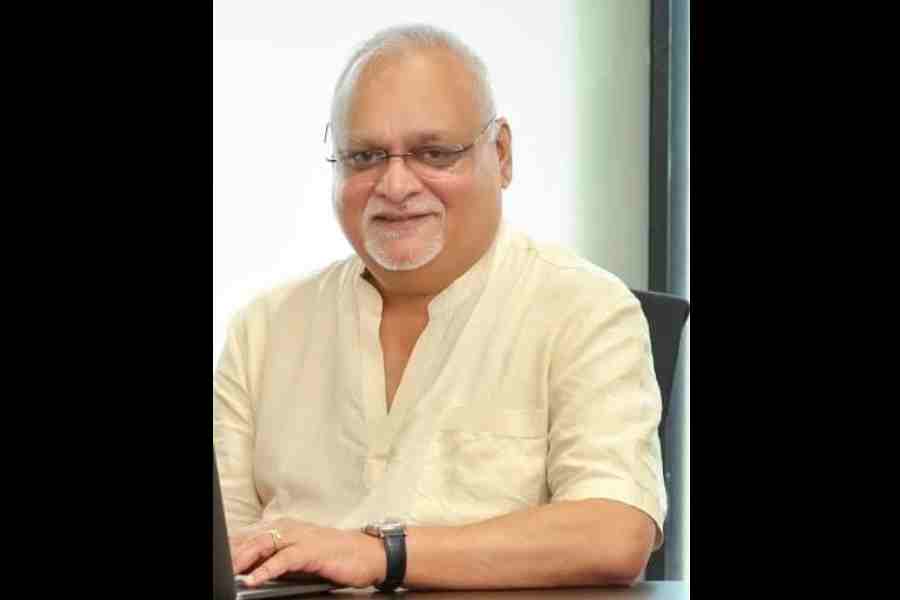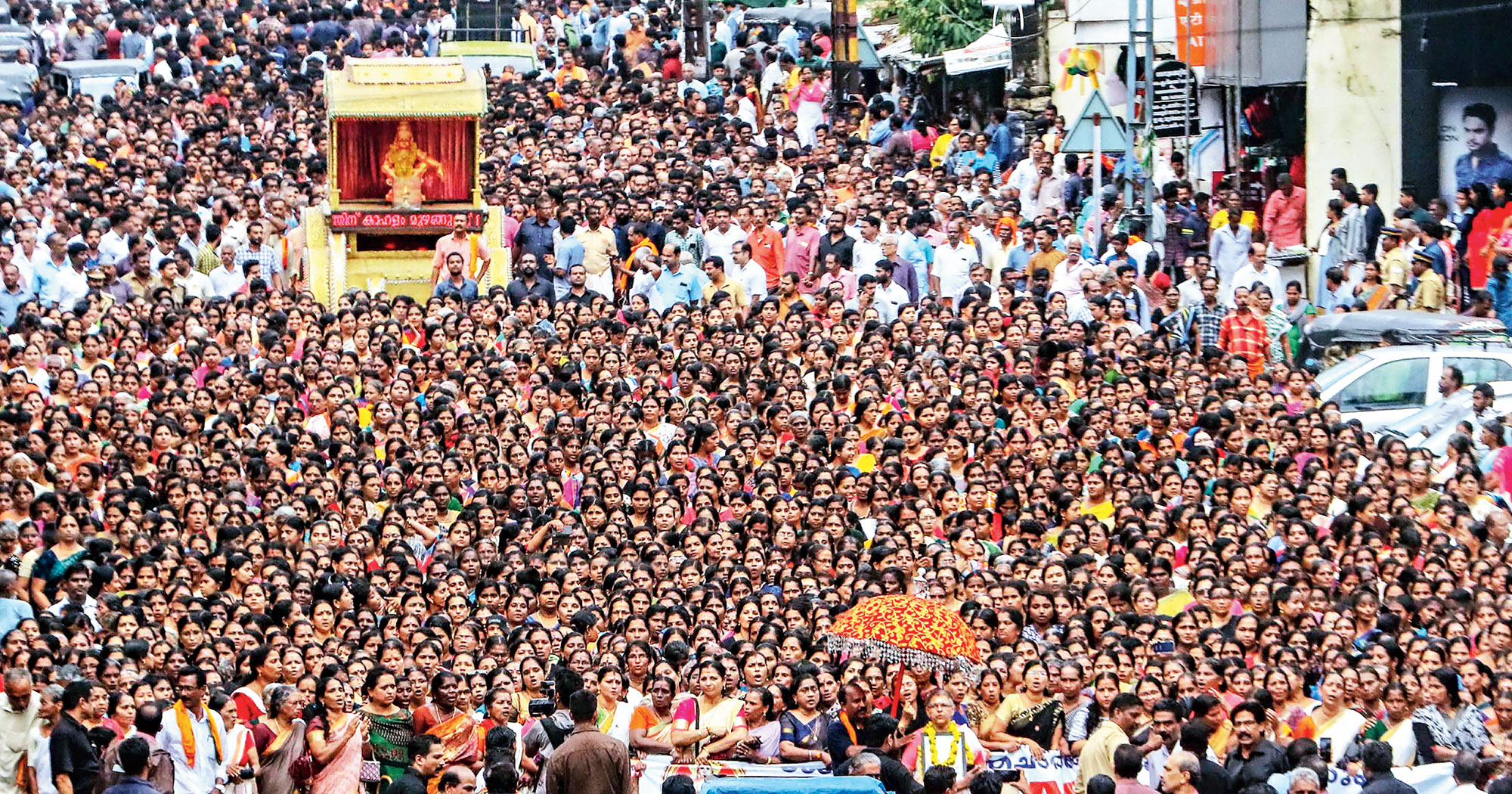Kerala, known for its progressive governments, welfare accomplishments and vibrant media,is now making news because its government is allegedly seeking to muscle its way into a journalistic territory that is considered sacrosanct in free societies.
No less than the managing director of Mathrubhumi, one of the most well-known legacy media houses in Kerala, has alleged that the objective of a police case against the journalists of his group’s news channel was to force them to name“certain officials” as the sources behind a leak that has embarrassed Kerala’s Left government.
“There are certain objectives behind this — that our people should tell them (the police) that certain officials gave them the information,” M.V. Shreyams Kumar told Asianet News on Friday in recorded footage that was shown as part of a programme on assault on media freedom.
“They (the police) want them (the Mathrubhumi News TV crew) to reveal the name they want; that we should tell them this particular person gave that information,” he added.
Rarely before has a media baron made such a statement in public, that too on a rival news channel. Kumar’s comments are particularly explosive because, as state president of the Loktantrik Janata Dal, he is an ally of the ruling Left Democratic Front.
Kumar’s family, along with another family, now controls the Mathrubhumi group whose stable includes the flagship Mathrubhumi newspaper, television channels and a book publishing business.
A reporter, a cameraman and a driver of Mathrubhumi were booked after they, on April 5, reported with video footage how a suspect in a Kerala train arson was ferried by road from Maharashtra.
Their revelation of how the single car used for the transport had developed a flat tyre, forcing a change of vehicles midway, had led to the government being accused of a security lapse and poor arrangements.
“It’s not just about the video-graphing (for the news report). That (revelation of the source’s name) is the aim of the case,” Kumar said.
An inspector-general of police, P. Vijayan, was suspended last month over the alleged leak of the information. Kumar made no reference to the officer but speculation has been rife that the government is hunting for proof against the IG.
If the police are expecting the journalists to implicate the police officer, such a line of inquiry will find itself on a slippery slope.
Confidentiality of the “source” — a person who passes on information to journalists, often at personal and professional risk to himself or herself — is one of the most protected assets in journalism.
Although there is no statutory exemption for not revealing the identity of a source in many countries, including India, a journalist is ethically not expected to betray the trust of a source if confidentiality had been assured beforehand.
So prized is the confidentiality that even the editor is usually not told by a reporter who the source is. Editors are expected to probe no further than asking how reliable the source is and go by the judgement of the reporter.
Risking jail, some reporters have flatly refused to heed court orders to reveal their sources. Judith Miller, who left The New York Times after it was found that several of her reports on Iraq’s “weapons of mass destruction” were based on inaccurate information, had preferred to spend time in jail for 85 days in 2005 than reveal her source.
The claim by Kumar, the Mathrubhumi managing director, comes at a time Kerala’s CPM government has been facing allegations of undermining media freedom by using the police to browbeat journalists.
It was no accident that Kumar aired his allegation on Asianet News during the special programme on the onslaught on media freedom in the state. The programme was held because a reporter of Asianet News has been slapped with a police case after she reported an allegation against a CPM campus-wing leader who later accused the journalist of being part of a conspiracy to defame him.
In the incident at the root of the Mathrubhmi News issue, the arson suspect, Delhi-based Shahrukh Saify, had allegedly sprinkled petrol on passengers of the Ernakulam-Alappuzha Executive Express on April 3, shortly after the train had left Kozhikode on its way to Kannur. He then allegedly lit a match and set them on fire.
A woman, her child and a man died when they jumped off the running train to escape the inferno. Several passengers suffered burns. Saify was arrested in Ratnagiri, Maharashtra.
Reporter Felix, cameraman Shaju and driver Aslam have been booked under Indian Penal Code sections 341 (wrongful restraint), 353 (assault or criminal force to deter public servant from discharge of his duty), 201 (causing disappearance of evidence), 506 (criminal intimidation) and 34 (common intention).
The journalists have been questioned but not arrested. Kumar said the cases being registered against journalists in Kerala were meant to stop them from reporting on controversial issues.
“This is just to tire out journalists. (The message is that) firstly, do not report; there will be a case if you report. No report will come out once they (the journalists) are contained in an atmosphere of fear,” he said.
Kumar added that going after journalists was wrong irrespective of the political party behind such action. “Whichever party it maybe — the Deshabhimani’s (CPM mouthpiece) Kollam bureau chief was arrested by the UDF (Congress-led United Democratic Front) government. That was wrong, too. Others shouldn’t follow that path and, instead, should aim to correct that,” he said.
Several writers, journalists and commentators have issued a statement on media freedom in Kerala. “It is a contradiction how those who continuously criticise the central government for its assault on media persons themselves threaten media freedom in the state they rule,” the signatories said in the statement issued to the media on the weekend.
“The situation in India is one where the governments and corporate-run media houses have been impeding media freedom.... Media freedom is not merely an issue concerning media persons. Instead, it is an integral part of a democratic society and citizen’s rights,” the statement added.
The signatories include journalists B.R.P. Bhaskar, M.G. Radhakrishnan, N.P. Chekutty, novelist C. Radhakrishnan, poet K.G. Shankara Pillai, academic J. Devika and commentator M.N. Karassery.












